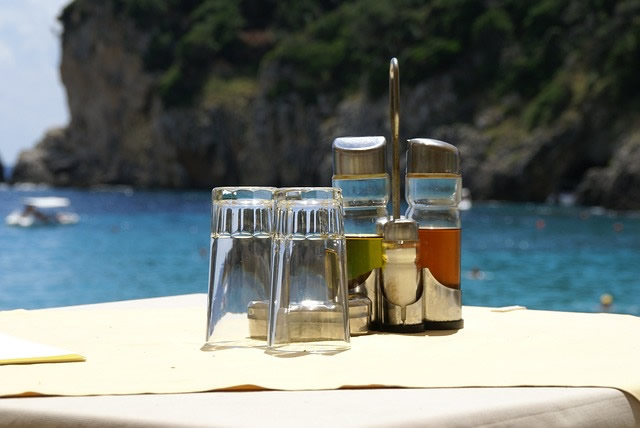先日から「Why vinegar is so good at cleaning -「お酢が掃除に適している理由」を読んでいます。

・「お酢が掃除に適している理由」(1)
・「お酢が掃除に適している理由」(2)
Another popular cleaning hack is to apply vinegar to a surface that needs to be cleaned, then sprinkle on some baking soda and watch as it foams up
また別のお掃除ワザとして、綺麗にしたい面にお酢を塗り、重曹を振りかけて泡立たせる方法があるが
- the same trick used to make the “lava” for volcanoes at school.
これは学校で火山の「溶岩」を作るときと同じ要領だ。
lava「溶岩、火山岩」。
In this case, the reaction produces water and carbon dioxide bubbles, which interact help to physically break up dirt.
この場合、反応によって水と炭酸ガスの泡が発生し、相互に作用して物理的に汚れを分解出来る。
As a “base”, a substance that will react with an acid, baking soda is also useful for drawing grease and stains into the cleaning liquid
酸と反応する物質である「塩基」として、重曹は油汚れを洗浄液に引き込むのにも有効で
- it makes the organic molecules within them more soluble in water.
その中の有機分子を水に溶けやすくする。
soluble「溶ける、溶解・解決できる」。
However, there is one situation where vinegar should never be used: on certain types of stone.
しかしある種の石材には、絶対に酢を使ってはならない状況がある。
Adding vinegar to limestone, travertine or onyx floors, worktops or tiles will replicate the baking soda reaction
ライムストーン、トラバーチン、オニキスの床やワークトップ、タイルに酢を加えると、重曹の反応が再現される、
- these rocks contain calcium carbonate, which is also a base.
これらの岩石には炭酸カルシウムが含まれており、これも塩基だからだ。
As the acetic acid in vinegar gets to work, you’ll end up with a beautifully clean surface – with holes in it.
お酢の酢酸が効いて美しい、ただし穴の空いた表面になる。
トラバーチンとは天然大理石の一種類のことで、よく豪邸の壁や床に用いられているようです。
オニキスも宝石として、アクセサリーなどに使われていますよね。
クレオパトラは真珠を酸に溶かして飲んだという話もありますし、カルシウムを含んだ素材には、酸は厳禁ということなんですかね。
理由は単純明快!「少ないコストでしっかり楽しく学べるから」。
私自身の経験(高機能でビックリ)をびっしり書いていますので、良かったら読んでみてください。
下のバナーからどうぞ!






